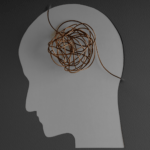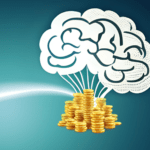Finding Focus and Calm: The Remarkable Ways Meditation Supports Those with ADHD
In a world that often feels like a whirlwind of constant stimuli and demands, individuals with Attention Deficit Hyperactivity Disorder (ADHD) navigate an intricate maze of challenges. The struggle to maintain focus, manage impulses, and find a sense of inner calm can be overwhelming. However, amidst this bustling chaos, a timeless practice offers a ray of hope and transformation – meditation.
Meditation, with its ancient roots and modern adaptations, has emerged as a promising tool for enhancing well-being and mental clarity. But what about its potential impact on those dealing with the unique dynamics of ADHD? Can the practice of quieting the mind and tuning into the present moment truly make a difference? Join us as we embark on a journey to uncover the fascinating realm where meditation and ADHD intersect.

Understanding ADHD
ADHD, or Attention-Deficit/Hyperactivity Disorder, is a neurodevelopmental disorder characterized by persistent patterns of inattention, hyperactivity, and impulsivity that can significantly impact an individual’s functioning and daily life. Understanding ADHD involves gaining knowledge about its symptoms, causes, diagnosis, and treatment options. Here are some key points to consider.
Symptoms of ADHD:
- Inattention: Difficulty sustaining focus, being easily distracted, making careless mistakes, struggling with organization and time management.
- Hyperactivity: Excessive restlessness, fidgeting, difficulty staying seated, talking excessively.
- Impulsivity: Acting without thinking, interrupting others, difficulty waiting for turns, impatience.
What is meditation?
Meditation is a practice that involves training the mind to focus and redirect thoughts, leading to a state of mental clarity and emotional calm. It is a technique that has been practiced for thousands of years and is found in various cultures and religions around the world. Meditation is often associated with relaxation and stress reduction, but its benefits extend beyond that.
In meditation, individuals typically find a quiet and comfortable place to sit or assume a specific posture. They then engage in a series of techniques or exercises that help cultivate a focused and calm state of mind. These techniques may involve focusing attention on a specific object, such as the breath or a mantra, or practicing mindfulness, which involves observing thoughts, feelings, and sensations without judgment.
Benefits of meditation for individuals with ADHD
Meditation can offer several potential benefits for individuals with ADHD (Attention Deficit Hyperactivity Disorder). While it may not be a standalone treatment for ADHD, incorporating meditation into a comprehensive management plan can be supportive. Here are some potential benefits of meditation for individuals with ADHD:
1. Improved Focus and Attention:
One of the core challenges for individuals with ADHD is difficulty in sustaining focus and attention. Regular meditation practice can enhance concentration and help improve the ability to direct attention to a specific object or task. By training the mind to stay present and resist distractions, meditation can strengthen the focus “muscle” over time.
2. Reduced Impulsivity:
Impulsivity is another characteristic of ADHD. Meditation cultivates self-awareness and mindfulness, which can help individuals with ADHD become more aware of their impulsive tendencies. With practice, they can develop the ability to pause and respond thoughtfully rather than react impulsively to stimuli or situations.
3. Emotional Regulation:
Emotional dysregulation is commonly associated with ADHD. Meditation promotes emotional awareness and self-regulation by creating space between thoughts, emotions, and reactions. It can help individuals recognize and manage emotional states more effectively, reducing impulsivity and improving emotional well-being.
4. Stress Reduction:
ADHD can be accompanied by higher levels of stress and anxiety. Meditation is known to reduce stress by activating the body’s relaxation response, lowering stress hormones, and calming the nervous system. Regular meditation practice can help individuals with ADHD manage stress more effectively and enhance overall well-being.
5. Increased Self-Compassion and Acceptance:
Individuals with ADHD often experience frustration, self-criticism, and feelings of inadequacy due to the challenges associated with the condition. Meditation encourages self-compassion and self-acceptance by fostering a non-judgmental attitude towards oneself and one’s experiences. It can help individuals develop a kinder and more understanding relationship with themselves.
6. Better Sleep Quality:
Many individuals with ADHD struggle with sleep difficulties. Meditation can promote relaxation and reduce racing thoughts, making it a helpful tool for improving sleep quality. By incorporating meditation into a bedtime routine, individuals with ADHD may experience better sleep patterns and increased restfulness.
It’s important to note that while meditation can offer benefits for individuals with ADHD, it is not a substitute for professional medical or therapeutic interventions. It is recommended to work with healthcare professionals, such as doctors or therapists, to develop a comprehensive treatment plan that addresses the specific needs and challenges associated with ADHD.
Challenges and considerations for meditating with ADHD
Strategies to make meditation more effective for individuals with ADHD
Meditation has long been praised for its numerous mental and physical health benefits, but individuals with Attention Deficit Hyperactivity Disorder (ADHD) may find it challenging to reap the same rewards as those without the condition. However, there are specific strategies that can help individuals with ADHD make their meditation practice more effective and enjoyable.
Firstly, setting a consistent routine is key. Individuals with ADHD often struggle with maintaining focus and attention on a single task for an extended period. Establishing a regular schedule for meditation helps create structure and familiarity, making it easier to engage in the practice consistently. Additionally, allocating short periods of time throughout the day instead of trying to meditate for long stretches can be beneficial for those who find it difficult to sit still or concentrate.
Key Takeaways:
In conclusion, meditation has shown great promise as a non-pharmacological intervention for individuals with ADHD. It has been found to improve attention, reduce hyperactivity and impulsivity, and enhance overall emotional well-being. By incorporating regular meditation practice into their daily routines, individuals with ADHD can potentially experience significant improvements in their symptoms and quality of life. Furthermore, meditation is a safe and cost-effective alternative to medication that can be practiced by people of all ages. Therefore, it is highly recommended that individuals with ADHD consider integrating meditation into their treatment plans to reap its numerous benefits and discover a sense of calm and focus in their lives.
Next Steps to Consider
We help you learn all of this and more in our groundbreaking neuro-performance programs.
This 12-week transformation profoundly benefits every aspect of your life: career, daily performance, health, wellness, cognitive function, habits, relationships, energy, emotional growth, and beyond. That’s because unlike any other program, we focus on the brain - the root of all change.
Unlocking your full potential is about learning, knowing, and transforming into your highest self. Our trainings help you unleash yours. Explore our programs now.










